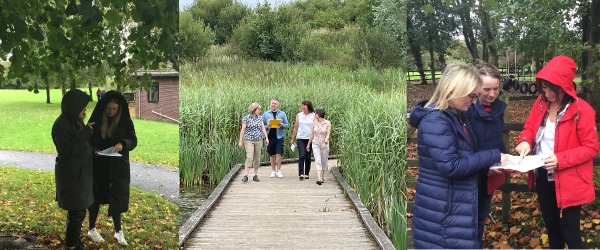Curriculum
Getting our bearing Ofsted 2023s: geography subject report –
Getting our bearings: geography subject report - GOV.UK (www.gov.uk)
Supporting Maths
Geography relies on mathematical skills to develop many of the key geographical concepts. Some of these are highlighted in the aims of the primary geography national curriculum and are particularly deep in supporting geographical skills and fieldwork i.e.
Pupils "are competent in the geographical skills needed to:
- collect, analyse and communicate with a range of data gathered through experiences of fieldwork that deepen their understanding of geographical processes
- interpret a range of sources of geographical information, including maps, diagrams, globes, aerial photographs and Geographical Information Systems (GIS)
- communicate geographical information in a variety of ways, including through maps, numerical and quantitative skills and writing at length."
Using appropriate deep links between subjects allows the whole curriculum to become more cohesive. In geography, maths helps to support the learning and thinking in areas such as:
•Enquiry, logical reasoning and problem solving
•Pattern seeking, grouping and sorting
•Counting, measuring and recording
•Predicting and estimating
•Graphs and charts
•Ratio, scale and percentages (proportionality)
•Geometry – direction, position and shape
•Boundaries, area and perimeter
•Time (time zones)
Working Outdoors in Primary Geography
Learning in the outdoors is an integral element in the study and learning of geographical concepts in primary school. It allows children to have real life ‘hands on’ experiences that engage their senses. It is easy to focus on the implementation of the geographical skills and fieldwork element of the curriculum, where children are encouraged to investigate the world around them. It provides children with a relevant, meaningful and memorable experience that supports the learning of geographical knowledge.
Photos of fieldwork course

“Through observing, collecting data for themselves, analysing it and describing their findings, pupils learn how to observe and record the environment around them. In effect, they have been immersed in relevant thinking and so key geographical knowledge sticks in their memory.” (1)
Although we can study physical and human aspects of the curriculum through our fieldwork, other areas of the geography curriculum, e.g. the study of place and location, can also benefit from working outdoors. This short article aims to highlight just a few examples which include:
The creation of large maps using natural materials found around your school grounds or place that is visited (e.g. beach). If no materials are available then the teacher and children can draw out maps using chalk on playgrounds or using ropes or cables. If maps are very large then children can move around them (e.g. between locations).
The creation of poems and songs – Creating poems and songs is a useful strategy to enhance the learning of key geographical knowledge. This activity is enhanced if it is carried out in an appropriate context. For example when creating poems in the study of rivers, hills, mountains, coasts…then children can engage their senses and get a real appreciation of these features if they visit them.
Understanding the concept of distance – When studying places and locations from around the world, the distances that are discussed are often difficult for children to comprehend. Being able to highlight these distances by making them relative to their experience, helps them get a better understanding. For example at KS1 making the distance to London relative to their nearest village, town or city and then expanding this to include their place choice at KS1, which will be even further.
Outdoor modelling – Modelling is an important tool in understanding concepts. In geography, working outside can offer an opportunity to enhance the learning of concepts such as topography and erosion through the use of models. Physical models could also be used to help understand about geographical features such as rivers.
Geocaching (Educaching) – An important element of using geocaching devices is the opportunity to reinforce geographical skills as the children use them to navigate and find the caches (the hidden treasure). The teacher can choose what to place in the caches, providing an opportunity to support other elements of the geography curriculum or other subjects by hiding artefacts, questions, or even sequences of procedures or processes that can be ordered.
More information and examples for outdoor learning in geography will be shared on subject leader sessions, fieldwork courses and at the Outdoor Learning Conference next year.
Bibliography
(1) - Research review series: geography (Ofsted) - https://www.gov.uk/government/publications/research-review-series-geography/research-review-series-geography
iamtheCODE
Sustainanble development goals: iamtheCODE - iamtheCODE
Unlock additional Science and the Foundations Subjects premium content (including policy templates, monitoring records, key learning and other publications) by visiting the subscriptions page.
If you already subscribe to this premium content and still cannot gain access, please ask your headteacher to login and click the 'My Account' section, select 'Manage Account', followed by 'Manage Subscriptions' and select 'Manage Users' next to the relevant package. You will then be able to add school users to your purchased package(s).